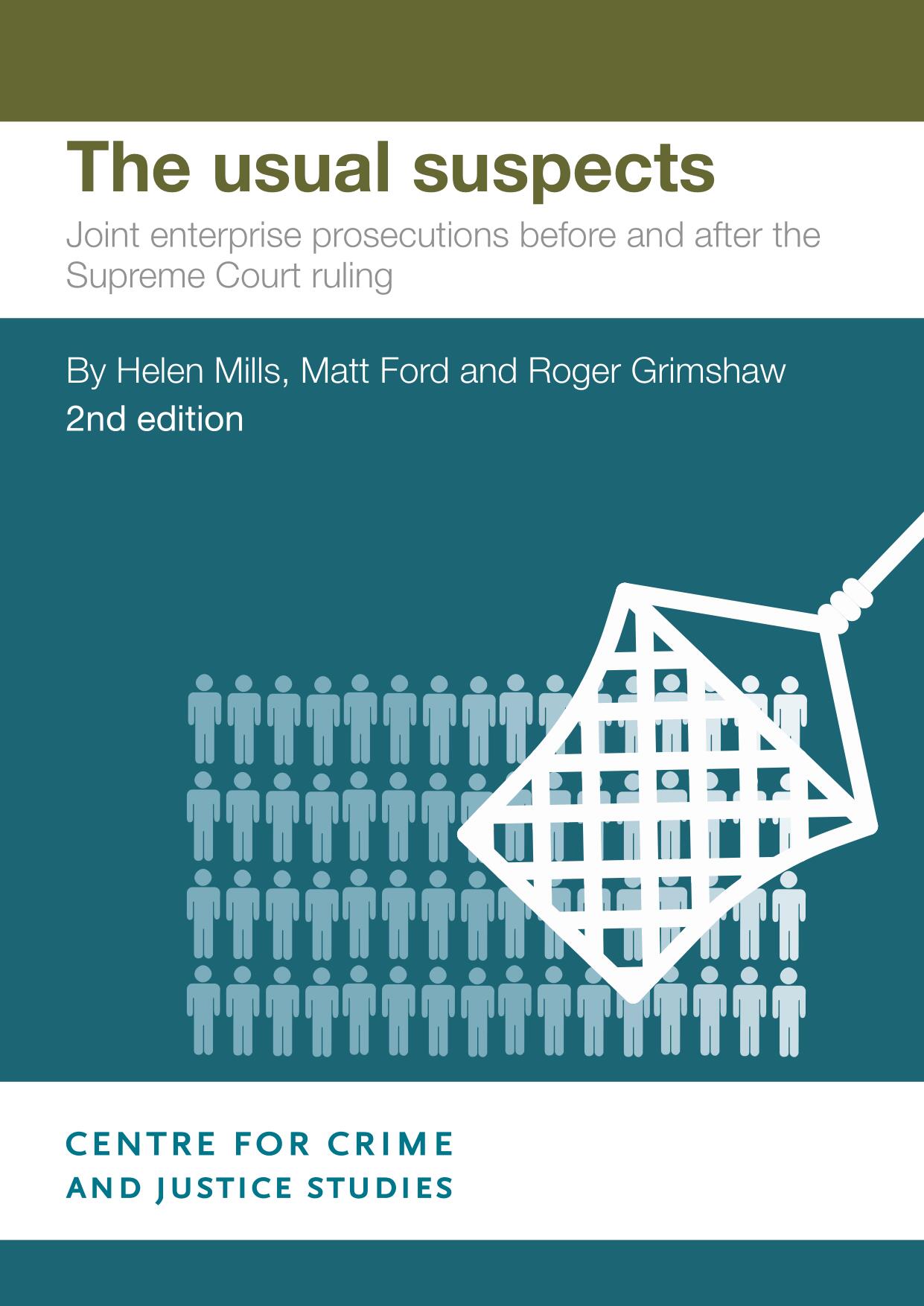The Usual Suspects uses national data to assess the use of joint enterprise laws in prosecutions for serious violence in England and Wales over the last fifteen years.
It is the first publication to track information about multi-defendant cases over this significant period of years, and features up-to-date figures inclusive of the period post the 2016 Supreme Court judgment, which ruled the law had taken ‘a wrong turn’ for more than thirty years.
Among the report's findings:
- Over a thousand secondary suspects were convicted of murder or manslaughter in the ten year period to 2020.
- Those from minority ethnicity communities, particularly the Black community, are consistently over-represented in multi-defendant prosecutions and convictions for homicide.
- The Supreme Court ruling had no discernible impact on the numbers or demograpics of people prosecuted or convicted of murder and manslaughter in multi-defendant cases.
The report calls for the House of Commons Justice Committee to review the application of joint enterprise rules. It all also calls on the Crown Prosecution Service to commit to proper data collection, and to undertake a retrospective review of joint enterprise prosecutions.
The report follows on from Dangerous Associations, the 2016 study which demonstrated how associations, gang and joint enterprise were being used to prosecute young people from minority ethnic backgrounds.
The second edition of The Usual Suspects was published following a clarified understanding of one of the datasets used, lead report author Helen Mills explains more here.
We are grateful to the Barrow Cadbury Trust for supporting this work.
Kim Johnson MP presses the government on the injustices of joint enterprise convictions, 26 May 2022
Selected coverage of The Usual Suspects
- Joint enterprise and the need for transparency, accountability and proper data, The Justice Gap, 22 November.
- Joint enterprise ruling has not led to fewer homicide charges, report finds, The Guardian, 27 April.
- Young black men as likely to be wrongly convicted under joint enterprise as six years ago when Supreme Court ruled law had taken ‘wrong turn’, The Justice Gap, 29 April.
- Supreme Court Fails To Prevent Unjust Joint Enterprise Convictions, Russell Webster, 29 April.
- The Usual Suspects – the Inevitable Injustices, Inside Time, 9 May.
- The Day That Should Not Have Been, Inside Time, 20 May.
- Dangerous Patterns: Joint Enterprise and the Culture of Criminal Law, Socio and Legal Studies, 8 August 2022 (citation).
- Little has Changed: Report on the Continued Use of Joint Enterprise, Youth Justice Legal Centre, 25 November.
- Joint enterprise prosecutions to be monitored for racial bias, The Guardian, 16 February 2023.
